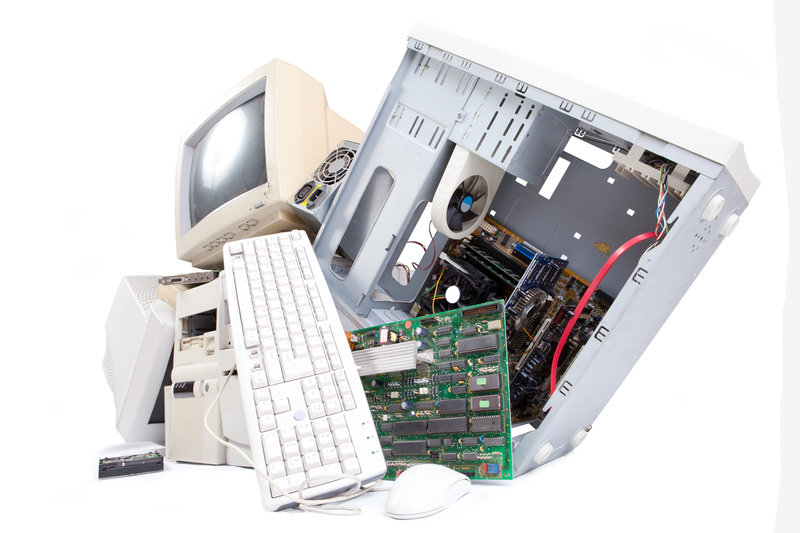Smart Ways to Save Cash When Dealing with Bulky Waste
Dealing with bulky waste disposal can quickly become an expensive headache for many homeowners, businesses, and even renters. From old furniture to appliances and construction debris, these large items rarely fit in standard bins, leaving you with limited, sometimes pricey, options. However, with a bit of strategic planning and creativity, managing and disposing of bulk waste doesn't have to break the bank.
In this comprehensive guide, we'll walk you through a variety of cost-effective ways to handle bulky junk, from recycling tips to community-based solutions, and even clever ways to profit from your unwanted items.

Understanding Bulky Waste: What Qualifies and Why Is It Costly?
Before diving into money-saving tactics, let's clarify what bulky trash actually includes. Typically, bulky waste encompasses anything too large or heavy for standard garbage collection. Common examples are:
- Obsolete furniture (sofas, mattresses, wardrobes)
- Large appliances (refrigerators, ovens, washing machines)
- Yard waste (tree limbs, large branches)
- Renovation debris (carpets, toilets, cabinets)
- Electronics (TVs, computers, monitors)
Disposing of such items is expensive because of their size and the environmental regulations surrounding their disposal. Municipal waste removal services often charge extra, and private haulers can be costly. That's why exploring cost-saving strategies is essential for both your wallet and the planet.
1. Schedule Free or Low-Cost Municipal Pickups
Many cities and towns offer free bulky waste collection days or curbside pickups, often included with your regular waste management fees. These programs typically occur once or twice a year but can save you significant cash compared to private haulers.
- Check your local government's website: Look for "bulk trash pickup" or "large item collection" for schedules and guidelines.
- Follow preparation instructions: Some municipalities require you to bundle items or limit the number per pickup.
- Book early: Slots fill up fast--plan ahead to avoid missing out.
It's an eco-friendly and budget-friendly way to get rid of sizable items.
2. Donate or Give Away Usable Items
What's old to you could be treasure to someone else, and donating bulky goods is a win-win: you'll reduce landfill waste and potentially avoid disposal fees.
- Contact local charities, shelters, or thrift stores. Many offer free pickup for large donations such as furniture and appliances.
- Post on community boards or apps like Freecycle, Craigslist, or Facebook Marketplace.
- Organize a curb alert: Leave items at the curb with a "Free" sign--often, neighbors will pick up usable goods quickly.
Donating bulky items can even earn you a tax deduction, making it an excellent way to save money on bulky waste disposal.
3. Repurpose or Upcycle Bulky Waste
With a dash of creativity, you can transform bulky junk into useful or beautiful new items, eliminating disposal costs entirely. Some upcycling ideas include:
- Turn old doors or wood furniture into shelving or garden planters
- Convert a broken dresser into a unique storage bench
- Use pallets to create outdoor furniture
- Repurpose metal frames for DIY projects
Not only does this save you money, but it also adds character and sustainability to your space.
4. Sell Your Bulky Items
If your clutter is still in decent shape, consider selling it online or through a garage sale. Selling bulky junk not only prevents disposal costs, but can actually add cash to your pocket.
- List items on platforms like Facebook Marketplace, OfferUp, or eBay Local
- Mention that buyers must arrange transportation--saving you time and effort
- Bundle items (like bedroom furniture set) to attract more buyers at once
- Highlight any upcycling or DIY potential to widen your audience
*Remember: Photos and honest descriptions help move items fast!*
5. Share Costs with Neighbors
Pooling resources with neighbors can lead to significant bulk waste removal savings.
- Rent a dumpster together: Split the cost of a rental dumpster for shared use over a weekend.
- Schedule a group pickup: Private haulers may offer volume discounts for multiple households.
- Community yard sales: Sell, swap, or give away items together to minimize what's left to dispose of.
Sharing services often reduces per-household costs and makes the process more efficient for everyone.
6. DIY Hauling to Local Recycling Centers or Landfills
If you own or can borrow a truck or trailer, hauling bulk junk yourself is typically cheaper than hiring a hauling service. Here's how to make the most of this method:
- Research drop-off fees: Many recycling centers accept large appliances or electronics for free or a nominal charge.
- Sort items in advance: Separate recyclables, metal, or e-waste, since fees are often lower by category.
- Verify hours and rules: Some sites require proof of residency or don't accept certain materials.
Be aware that landfill fees can add up, so prioritize recycling options whenever possible.
7. Take Advantage of Manufacturer or Retailer Take-Back Programs
Many appliance retailers and electronics manufacturers now offer free or reduced-cost take-back services when you purchase a replacement. For example:
- Big box stores may haul away your old refrigerator when delivering a new one
- Electronics stores often accept old TVs or computers during "trade-in" events
- Mattress retailers partner with recycling programs for same-day removal
Always ask about "haul away" policies before completing a major purchase--you could save hundreds of dollars on disposal fees.
8. Hire Responsibly--and Compare Prices
If you must use a junk removal or hauling company, do your research to avoid overpaying. Here's how to save money on professional bulky waste dumping:
- Get at least three quotes and compare what's included
- Ask about discounts for curbside pick-up or pre-sorted loads
- Inquire if recyclable items or donations lower the price
- Check reviews to be sure they dispose of items lawfully and ethically
A little due diligence can result in significant bulk trash cost savings.
9. Organize a Community Clean-Up Event
Some communities arrange periodic "clean-up days" where dumpsters or hauling services are provided for free or at a steep discount, often subsidized by local government or HOAs.
- Check your city or neighborhood association calendar for upcoming events
- Volunteer to help coordinate: Active participants are sometimes allowed to dispose of more material
- Suggest adding a bulky waste component if one doesn't exist
Participating in these events saves money and strengthens relationships with neighbors.
10. Avoid Fines by Following Bulk Trash Guidelines
Improper bulk waste disposal can trigger fines or added charges, erasing any attempted savings. Avoid penalties by:
- Only setting items out on approved dates
- Not overloading sidewalks or blocking traffic
- Checking if hazardous materials (like old fridges or electronics) require special handling
- Labeling or pre-breaking items down if required
When in doubt, call your local waste authority for clarification on regulations.
11. Explore Creative Partnerships
Sometimes, local artists or DIYers actively seek free large materials for their projects. Try reaching out via:
- Social media groups dedicated to repurposing or art
- University art departments
- Crafters and hobbyist forums
You may avoid dump fees and help foster creativity within your community!
12. Get Informed About E-Waste and Appliance Recycling
Electronics and appliances often contain hazardous materials but also valuable recyclables. Many states offer free e-waste drop-off points or sponsor "electronics recycling days" that can save you a bundle compared to landfill fees.
For appliances, check for programs that offer cash back or rebates for recycling certain old models.
The Long-Term Payoff: Conscious Consumption
Ultimately, the best way to save money on bulky waste disposal is to reduce the need for it altogether. Adopt habits like:
- Buying high-quality, long-lasting goods instead of disposable ones
- Maintaining and repairing furnishings and appliances to extend their lifespan
- Opting for modular, upgradable, or resellable products
Minimizing consumption leads to less bulky trash, less cost, and a healthier environment.

Frequently Asked Questions
How much does bulky waste removal usually cost?
Costs vary greatly by location and service type, ranging from free municipal pickup to several hundred dollars for private junk hauling. Typical per-item rates are $50-$150, while full-truckloads with pro movers can exceed $500. DIY drop-off at landfills or recycling centers is usually the cheapest route if you have transportation.
Are there any hidden costs with private junk removal services?
Yes. Watch for fuel surcharges, disposal fees, and extra charges for heavy or hazardous items. Always ask for an itemized estimate before agreeing to service.
Can I leave my bulky junk out with regular trash?
Usually not--it's illegal in most municipalities. Doing so could result in fines or non-collection. Always check your city's bulk waste calendar and rules for proper procedures.
What should I do with bulky hazardous waste (e.g., refrigerators, TVs)?
These items contain chemicals (like Freon in fridges or lead in TVs) and require special disposal. Contact your local e-waste recycling program or ask the manufacturer about take-back services. Never abandon these items outdoors--they can cause environmental harm and legal trouble.
Conclusion: Save Money, Save the Planet
Dealing with bulky waste doesn't have to drain your finances. By tapping into free community resources, considering upcycling or donation, and thinking collaboratively with neighbors, you can drastically trim costs while supporting a more sustainable community. Every dollar saved and item diverted from landfill helps create a greener, tidier future. Start implementing these tips today and watch your savings--and positive impact--grow!



